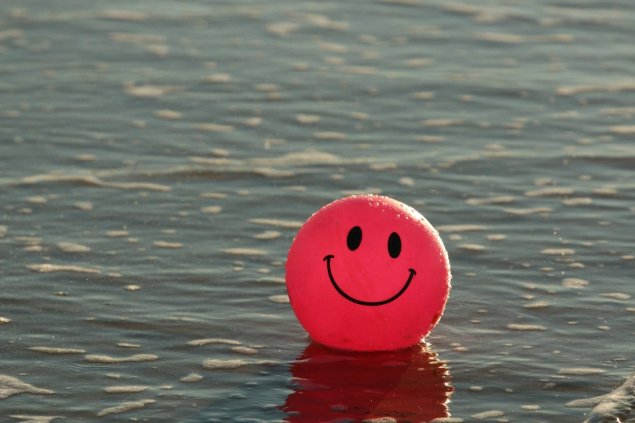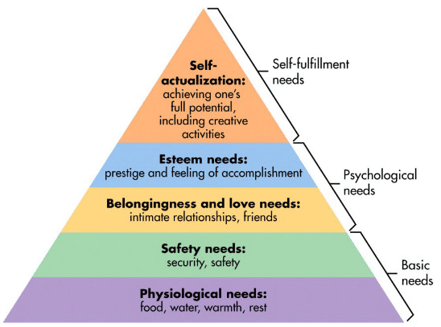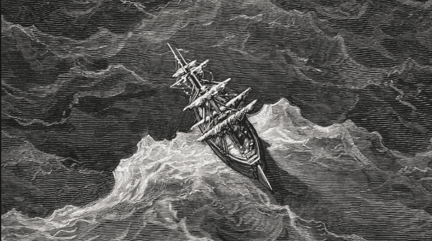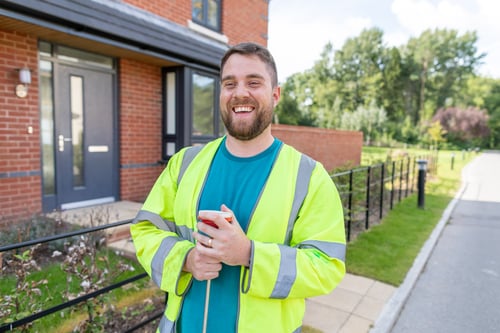
Education leads to an understanding of the impact of one’s actions, which provides the incentive for change and for encouraging others to change. The greater the number of people who make the same change in their behaviours, the greater the impact this will have on society and public wellbeing. Education and public wellbeing have become increasingly important in recent times. The threats of climate change, resource depletion and trade and tariff wars (those between global superpowers and those that may result from the Brexit process, whenever that concludes) have all impacted our previously unshaken belief that things will be all right in the end.
“That’s all very well, but why are you linking education to public wellbeing?”
It is a fair question to ask. Knowledge (which we acquire through education and learning throughout our lives) can lead to behavioural change. As we are all creatures of habit, this conscious change in our behaviour will only occur if we are able imagine and see the tangible benefits that such a change in our habits will contribute to (for example via knowledge of how water efficiency can be beneficial to the planet, can save you money and can be helped by even the smallest of behaviour changes, such as by only filling and boiling the kettle with as much water as you need). This knowledge, if shared by enough people, can then lead to a new generation of ‘conscientious consumers’, who can also influence their parents’ and grandparents’ behaviour too. This can then lead to collective action (in this case as a result of reduced water use), which leads to a significant benefit to society and public wellbeing (as the reduction in resources we all need ensures there is more to go around in the future and which contribute to lower bills as less water is consumed).
“Fine! But what on earth has the social contract got to do with education and public wellbeing?” I hear you say.

Bear with me on this, but the objective of everyone’s existence is, arguably, the pursuit and achievement of happiness. “Life, Liberty and the pursuit of Happiness” is, for example, a well-known opening phrase in the United States Declaration of Independence. The signatories of that Declaration recognised that societal wellbeing is akin to societal happiness. The importance of happiness is recognised in our society today. Bristol, the major city that we supply water too, is even home to the Happy City Initiative, one of the most well-known wellbeing research centres in the world, with objectives related to measuring, training and campaigning to put people’s contentment on the public agenda. The fulfilment of this happiness is however impacted by the threats we face today.
Hierarchy of Needs
The health, well-being and dignity of all our customers, otherwise known as the happiness of all of our customers, cannot be guaranteed without, at the very least, access to adequate water and sanitation. The social contract is a tool that enables us as a water company to not only deliver the essential needs of society, but enable our customers to appreciate the relevance of learning and education in achieving this too.

We are at Bristol Water under no illusion about the importance of the essential services that we provide. Staying hydrated is important for feeling energised and concentrated. Maintaining a good water balance in our bodies is absolutely vital for our health and survival. Indeed, as Maslow’s ‘hierarchy of needs’ demonstrates, water is considered to be one of the most fundamental needs that must be fulfilled first, without which no-one could achieve self-fulfilment and happiness in their lives. Our social contract is an opportunity for the company to move beyond our role of providing the essential services that fulfil all of our customers’ basic needs. It will go a long way to helping our customers find happiness, as well as to help contribute to societal wellbeing.
Water, water everywhere, nor any drop to drink
In order to illustrate the importance of water for human happiness, we must all understand the importance of water to sustaining life and the right to it. The right to water is often thought of in human rights terms as access to clean, safe drinking water, which underpins the human right to life. This right is enshrined in UN Sustainable Development Goal (SDG) 6 to ‘ensure availability and sustainable management of water and sanitation for all’.
“But why do I need this right? Water is everywhere.”

Yes, water is literally everywhere; remarkably, water is the only substance that is found naturally on Earth in three forms (as liquid to drink, as gas to breathe and as a solid, when it is ice). It makes up over half of our body weight. Although our planet is covered in it, it is unfortunately always fresh or clean water (as Samuel Taylor Coleridge articulated in The Rime of the Ancient Mariner that there is “water, water everywhere, nor any drop to drink”). We use large amounts of water every day in our homes, from drinking, cooking, cleaning, washing and gardening. It is the basis of all living things and it is fundamental to sustaining all forms of life. This is why millions of tests are conducted annually in England and Wales to guarantee the best possible quality of water for consumers. At Bristol Water we supply 266 million litres of water a day to 1.2 million customers through 4,160 miles of water mains. Our water must meet strict standards to ensure it is safe to drink. That makes our tap water the most regulated drink out there. Despite all the costs to treat it, an average water bill is just 48 pence per day for our customers. Yet the world’s water supply is finite and access to clean water is not guaranteed across many parts of the world.
“Okay, but remind me again, how does education fit into all of this?”
Water is often something that can be taken for granted and a lot of people do not realise the importance of it in their day-to-day lives. Knowledge however is power. If we can teach each other about the importance of water and its link towards achieving happiness, then we will be more likely to appreciate its value and treat it as a valuable commodity. This is why education is a theme in our recently published social contract that our community initiatives will focus on. This theme will focus on inspiring current and future customers, making the link between behaviour and impact and on influencing water resource efficiency behaviour to bill-payers through harnessing the power and knowledge of the next generation. Our role as a water company will never be limited to just being a commercial transaction to supply a service to bill payers, but is instead considered to be a matter of contributing to public health and the wellbeing of society as part of our role of providing an essential public service. Alex Smethurst is a Regulatory Policy Advisor at Bristol Water. He joined the company in November 2016, having previously worked as a policy advisor at Bristol City Council and as a parliamentary assistant for an MP in Bristol. Alex has an MSc in Political Theory from the London School of Economics; his dissertation focused on the failure of liberal democracies to formalise ‘utopian’ visions of society and the implications this has on their longevity. In his spare time (for his sins) he follows Chelsea Football Club and regularly swims at the Bristol South Swimming Pool in Bedminster (where the BBC filmed a scene from Sherlock at the end of the first series).
.png?width=500&height=500&name=Squidge_Snap%20(1).png)

